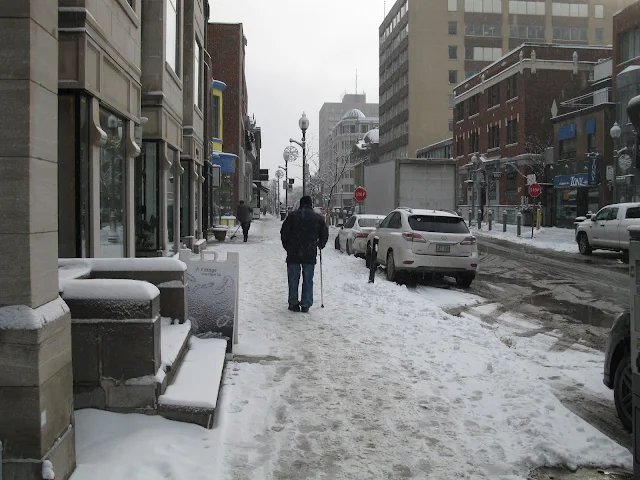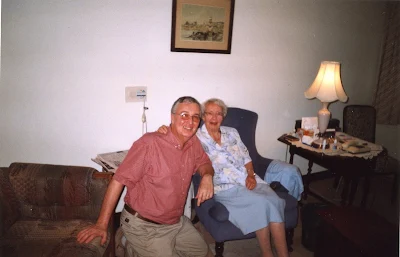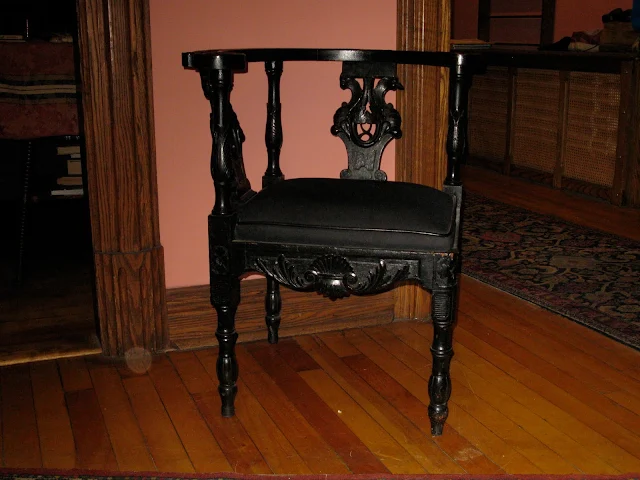A few weeks ago I was doing some research at UBC's Rare Books & Special Collections and University Archives. Part of this research was reading Brian Fawcett's "NMFG," an acronym for "no money from the government."
NMFG, a magazine of poetry and poetics, ran from 1976 to 1979.
Vancouver was especially important back in the 1970s, that's where contemporary poetry was happening in Canada. This is no longer the case and I suspect there is no single place in Canada that is the center for new and important poetry in this country. I remember visiting with Richard Sommer, who was a poet and had been one of my professors at Sir George Williams University, after he and his family had visited Vancouver and been influenced by the poetry scene there; Vancouver, truly, seemed like a Mecca as compared with Montreal at that time. Richard was a little bit of Vancouver in Montreal, someone who made a significant impression on me back then.
I need to qualify these comments on
NMFG and the Vancouver poetry scene by saying that
NMFG represents only one aspect of the Vancouver poetry scene back in the second half of the 1970s; there were other groups, other poets, other poetry scenes in Vancouver. My impression has always been that Vancouver was a pretty open and welcoming place for poets. It has always seemed to me to support and welcome poets, support a literary community, and not try to drive poets away. I can't say the same for Montreal, where a literary community exists but it is fragmented and divisive. I remember receiving a letter from bpNichol commenting on this. This is also one reason why the Vehicule Poets were so important in Montreal, we had no single aesthetic commonality but we were inclusive and supportive to each other.


I noticed two items of interest in
NMFG's back issues that I want to mention here: first is a short message from Artie Gold, suggesting that the gay content in the journal was detracting from commentary on poetry. Good old Artie, you wouldn't make this comment in today's politically correct world. But you also wouldn't get away with the "boy's club" of poetry found in
NMFG; check out how many women poets are published in its pages, in many issues it's none. These intellectual men running
NMFG come across as embarrassingly mysognynistic. As well, another comment, while American poets found a welcome home in Vancouver back then some of them don't seem to have thought Canadian poetry worth their time. I wonder if some of these same people will one day be seen as little more than long-term visitors to Vancouver, as footnotes, and not really part of the poetry tradition in Canadian Literature? Maybe someone will address this issue in Anvil Press's forthcoming
Making Waves: Reading BC and Pacific Northwest Literature, edited by Trevor Carolan at the University of the Fraser Valley.
The second item is Brian Fawcett's review of the first anthology of English poetry in Montreal (
English Montreal Poetry of the 1970s) published by Vehicule Press back in the mid-1970s. I know the anthology very well, I taught it for several years to my college-level Canadian Literature students, and I know personally many of the poets in the anthology. The review misses the point of the anthology which was a gathering of what was happening in English poetry in Montreal back then; we'd had years of the poetry community growing smaller and smaller, and finally there was a kind of Renaissance going on mainly due to our efforts at Vehicule Art Gallery. The anthology's editors (Norris and Farkas) were fairly democratic in choosing who would be in it, and it was the first evidence in print that Montreal poetry was coming back to life. You might trace the more open and inclusive aspects of the present-day poetry scene in Montreal back to this anthology, it was one of the signs that things had begun to change for the better. We'd had Dudek and Layton's public quarrel before Layton left for Ontario and Louis seemed to stop making public statements until he wrote the introduction to my first book,
The Trees of Unknowing (Vehicule Press, 1978). As well, the separatist movement was growing in Quebec and the English-speaking community was being increasingly marginalized. The Vehicule Poets, beginning around 1974, were the first poets in Montreal at that time who were awake to contemporary poetry whether in the States or in the rest of Canada; however,
NMFG couldn't have known any of this.

















































